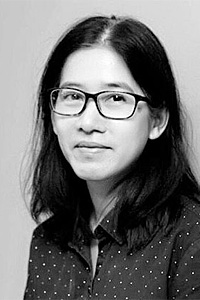Volunteer firefighter, Kornsith Laophan, 18, was killed in the July 5 explosion at the Ming Dih Chemical factory in Samut Prakan.
The fire, which damaged more than 70 houses, 15 vehicles and injured 29 people, was not the first time a volunteer firefighter died in the line of duty. When dedicated firefighters die, they are honoured and called heroes in the media. But such honours provide little comfort to firefighters left grieving for their fallen comrade. Chief Pongsapat Katakunvisith of the Somdet Chaopraya Emergency Rescue Unit has often said that firefighters and rescue volunteers do not seek to be heroes but they just want to do their job and would rather come home with every member of their unit alive and well.
Firefighters and rescue volunteers are devoted people who risk their lives in spite of no payment. They lack support and often proper equipment and gear to handle a heavy blaze and toxic fumes. Many of them use second-hand gear that they purchased themselves and wear surgical masks while walking through flames and toxic smoke. The surgical masks do not prevent the inhalation of toxins.
Pongsapat spoke of repeated problems of synergy among firefighting organisations, noting that the commanding officer in charge of an operation is not a firefighting specialist and that the foam and water needed to extinguish the fire are always in short supply. Firefighting officials also have trouble finding building engineers and often contact the person too late or after the fire has already been put out.
If these rescue volunteers had effective equipment and gear along with a good teamwork ethic, they could extinguish infernos faster and prevent extensive property damage and -- most importantly -- save lives.
Our government needs to take several steps to prevent future tragedies. First, rescue volunteers should be provided with the necessary equipment. Even more so, the government should show some foresight by enacting and enforcing strict regulations regarding factory conditions and maintenance as well as control industrial zoning.
Six days after the death of Kornsith, Thailand lost another hero. This time it was one of "the warriors in white gowns", the honoured title bestowed on healthcare workers. A nurse posted online that her colleague, Donut, a nurse at a Covid ward, became infected with the coronavirus and died despite having received two doses of the Sinovac vaccine. The nurse insisted that Donut did not have any chronic diseases and said that if frontline health workers had received better vaccines than Sinovac, Donut would still be alive.
The quality, safety and efficacy of Sinovac have been speculative since healthcare workers were vaccinated in March. Even though frontline health workers are at high risk of being infected, they were given the Sinovac vaccine, which is considered less effective than other vaccines. Some of them prefer other vaccines, especially mRNA vaccines like Pfizer and Moderna. However, their voices have been ignored by their administrators. Some of them said they are "unarmed warriors in white gowns". While they may be called heroes, healthcare workers are not treated as such.
A recent study by Dr Anan Jongkaewwattana, a virologist at the National Center for Genetic Engineering and Biotechnology, and Dr Khate Sripratak from the Central Chest Institute of Thailand stated that two doses of Sinovac can boost the neutralising antibody level to 80%-90% and it can combat against the Alpha variant of Covid-19 but not the Delta variant. Therefore, administering two shots of Sinovac and an additional booster of the AstraZeneca vaccine will boost the neutralising antibody level to 99% and effectively fight the Delta variant. The study also suggested that mRNA vaccines are more effective against Delta but these are not available in Thailand.
A week before the study was released, media outlets reported that the US had donated 1.5 million doses of Pfizer to Thailand. The Ministry of Public Health stated that these doses would be used for medical workers as a booster. According to the news, these 1.5 million Pfizer doses will arrive in Thailand this month or next month. It was great news for medical and healthcare workers who prefer the Pfizer vaccine.
After the study was released, the Public Health Ministry changed its policy to cope with the Delta variant. People who have had Sinovac as a first dose will receive AstraZeneca as a second dose. Frontline healthcare workers who had two doses of Sinovac will receive a third dose of the AstraZeneca or Pfizer vaccine as a booster. While waiting for Pfizer, the booster vaccine will be AstraZeneca. Everyone should keep an eye on how the Pfizer vaccine will be distributed since we know that in Thailand, connections are everything and some privileged people can use connections to get their hands on the vaccine they want. However, the Pfizer vaccine from the US has been specifically donated to healthcare workers as a first priority. Since we call them heroes, they should be treated like heroes. In this situation, frontline medical workers deserve to receive Pfizer, the vaccine that they trust and believe in.
Suwitcha Chaiyong is a feature writer for the Life section of the Bangkok Post.
